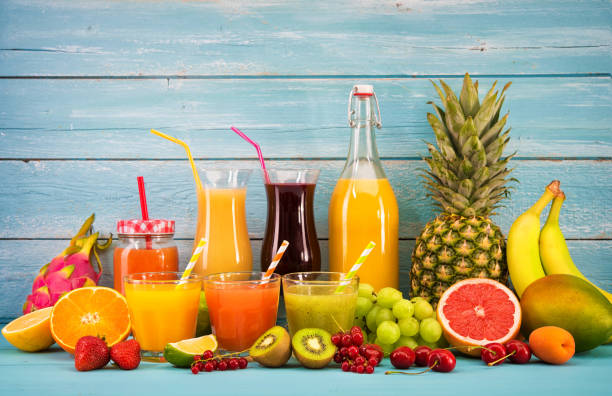Pregnancy Diet Chart: Nutrition Plan for Expecting Moms
A healthy diet during pregnancy is essential for both the mother and the baby’s development. A well-balanced pregnancy meal plan ensures you get the right nutrients, maintain energy levels, and support fetal growth.
In this pregnancy diet chart, we will cover:
✅ Best foods to eat during pregnancy
✅ A trimester-wise diet plan
✅ Healthy meal ideas for breakfast, lunch, and dinner
✅ What foods to avoid during pregnancy
Let’s dive into your ultimate pregnancy nutrition guide!

Why Nutrition Matters in Pregnancy
During pregnancy, your body needs extra calories and essential nutrients like folic acid, iron, calcium, and protein. A proper pregnancy meal plan can help:
✅ Support fetal brain development
✅ Prevent pregnancy complications
✅ Reduce morning sickness & fatigue
✅ Boost immunity and energy levels
Did you know? Pregnant women need around 300 extra calories per day in the second and third trimesters!
Daily Meal Plan During Pregnancy

First Trimester Diet (Weeks 1-12)
Key Focus: Folic acid, Vitamin B6, and Hydration
Best Foods: Leafy greens (Spinach, Kale) Nuts & seeds (Almonds, Chia seeds) Whole grains (Brown rice, Quinoa) Lean proteins (Eggs, Lentils, Fish)
Avoid: Caffeine, raw seafood, and excessive sugar

Second Trimester Diet (Weeks 13-26)
Key Focus: Calcium, Iron, and Omega-3 Fatty Acids
Best Foods: Dairy products (Milk, Yogurt, Cheese) Lean meats & tofu for protein Fatty fish (Salmon, Sardines) Avocados & bananas for potassium
Avoid: Too much salt, processed foods, and raw eggs

Third Trimester Diet (Weeks 27-40)
Key Focus: High fiber, Iron, and Energy-boosting foods
Best Foods: Sweet potatoes & carrots for Vitamin A Beans & lentils for fiber Whole-grain bread & chapati Watermelon & coconut water for hydration
Avoid: Spicy foods, fried foods, and excessive sugar
Daily Meal Plan During Pregnancy
You could be Pregnant. Feel free to talk to us
During pregnancy, maintaining a healthy and well-balanced diet is essential to support the mother’s health and the development of the baby. This includes consuming a variety of nutrient-rich foods such as fruits, vegetables, whole grains, lean proteins, and dairy products to ensure adequate intake of essential vitamins and minerals. Pregnant women should also stay hydrated by drinking plenty of water, avoid alcohol, tobacco, and other harmful substances, and follow medical advice regarding prenatal supplements. By prioritizing nutrition and adopting healthy habits, pregnant mothers can promote optimal outcomes for themselves and their babies.

| Food | Calorie (kcal) | Proteins (gms) | Benefits |
|---|---|---|---|
| Moong Dal Chilla | 150 | 4 |
|
| Daliya (Cracked Wheat) Upma | 200 | 1 |
|
| Sprouts Chaat | 150 | 5 |
|
| Whole Wheat Vegetable Sandwich | 300 | 2 |
|
Lunchtime nourishment for expecting mothers. Delicious, balanced meals for a healthy pregnancy journey. Fueling you and your little one with every bite.
| Food | Calorie (kcal) | Proteins (gms) | Benefits |
|---|---|---|---|
| Lentil dal | 150 | 4 | Lentils are a good source of protein, iron, and fiber, important for fetal development and maternal health. |
| Vegetable curry | 200 | 1 | Made with a variety of colorful vegetables like carrots, peas, cauliflower, and potatoes, cooked in a flavorful blend of spices like turmeric, cumin, and coriander. |
| Steamed basmati rice | 150 | 5 | A nutritious source of carbohydrates that pairs well with the dal and vegetable curry. |
| Chapati or whole wheat roti | 300 | 2 | A whole grain flatbread that complements the meal and provides additional fiber and carbohydrates. |
Dinner delights for expecting moms. Savoring nutritious meals to support you and your baby’s well-being during this special time. Enjoy every bite, nourishing your journey.
| Food | Calorie (kcal) | Proteins (gms) | Benefits |
|---|---|---|---|
| Grilled or Baked Fish with Brown Rice and Stir-Fried Vegetables | 150 | 4 |
|
| Vegetable Khichdi | 200 | 1 |
|
| Mixed Vegetable Pulao with Yogurt | 150 | 5 |
|
| Paneer (Indian Cottage Cheese) Tikka with Quinoa Salad | 300 | 2 |
|
Snack smart, nourish your glow. Tasty treats for expecting moms, fueling your energy and supporting your baby’s growth. Delicious bites for a healthy pregnancy journey.
| Food | Calorie (kcal) | Proteins (gms) | Benefits |
|---|---|---|---|
| Mixed Nuts and Dried Fruits | 150 | 4 |
|
| Fruit Chaat | 200 | 1 |
|
| Makhana (Fox Nuts) Snack | 150 | 5 |
|
| Coconut Water and Roasted Grams | 300 | 2 |
|
Foods to Avoid During Pregnancy
Certain foods can harm your baby’s development.
Avoid:
✓ Raw meat & seafood (Risk of infection)
✓ Unpasteurized dairy (Listeria risk)
✓ High mercury fish (Swordfish, Shark)
✓ Alcohol & caffeine (Affects fetal growth)
✓ Artificial sweeteners & processed foods (Too much sugar & chemicals)

Hydration & Lifestyle Tips for a Healthy Pregnancy
✓ Drink 8-10 glasses of water daily
✓ Stay active with light exercises (Yoga, Walking)
✓ Get at least 8 hours of sleep
✓ Take prenatal vitamins as prescribed

Final Thoughts: Your Pregnancy Diet Matters!
Eating the right foods ensures a healthy pregnancy, smooth delivery, and proper fetal growth. Follow this pregnancy diet chart and make smart food choices every day!
Want a Personalized Pregnancy Diet Plan?
Book a Free Consultation with our Nutrition Experts at Anandi Hospital!
FAQs
Eat a balanced diet with fruits, vegetables, whole grains, lean proteins, and dairy. Include foods rich in iron, calcium, and folic acid to support both you and your baby’s health.
Yes, you can follow a vegetarian diet during pregnancy. Ensure you get enough protein, iron, and vitamin B12 from sources like legumes, tofu, fortified cereals, and leafy greens.
You need about 300 extra calories per day in the second and third trimesters to support your baby’s growth. These calories should come from nutritious foods like fruits, vegetables, and whole grains.
Yes, fish is a good source of omega-3 fatty acids and protein, but avoid fish with high mercury levels, like shark, swordfish, and king mackerel. Opt for salmon or sardines instead.
It’s best to limit caffeine intake to under 200 milligrams per day (about one small cup of coffee). Excess caffeine can increase the risk of miscarriage or preterm birth.
Avoid raw seafood, unpasteurized dairy, raw eggs, and high-mercury fish. Also, limit processed foods, caffeine, and alcohol for the safety of your baby.

